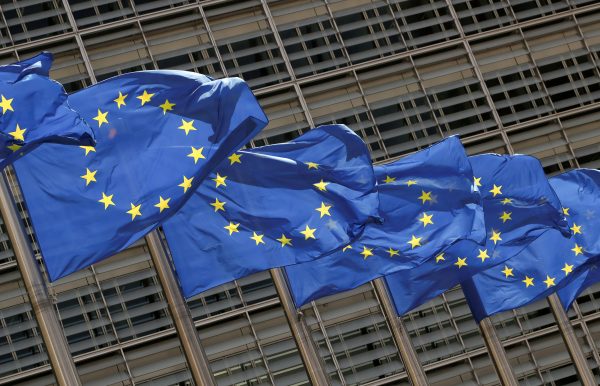The plan reflects concerns about carbon leakage and fear of a, largely unsubstantiated, race to the bottom as production moves to countries with less strict emissions regulation. It is part of thirteen proposals from the European Commission aimed at cutting carbon emissions to 55 per cent below their 1990 level by 2030.
By imposing a carbon border tax and flexing its extra-territorial regulatory muscle, the European Union aims to shift part of the burden of environmental reform onto foreign producers.
The eventual outcomes and the extent of distortion to world trade are difficult to predict. Two key factors are in play: the extent to which affected exporters shift away from Europe towards other markets, and the extent to which they incorporate carbon costs in their exports, or are deemed by the European Union to have done so.
The potential for impact on the Asia Pacific region is very real. Over the period 2025–2035, the measures would see subsidies phased out and border protection implemented across four sectors: aluminium, cement, fertilisers and steel. These sectors are dominated by Asia Pacific exporters, all of which are vulnerable to increased trade costs in accessing the EU market or negative displacement effects in third-country markets as exports are redirected away from Europe.
The nature of the final CBAM package coming out of Brussels and the way it is implemented will be crucial. One suggestion made by Asia Pacific stakeholders in a survey of business and government is that the revenue generated by the border tax be used to help developing countries advance their ‘common but differentiated’ decarbonisation efforts. Indonesian participants stressed this point.
But if EU border taxes are to be the trade-off for eliminating subsidies and free pollution permits, European stakeholders won’t want the proceeds going to developing countries — not even the least developed, for whom no special provisions are being made in the CBAM proposal. The prospects are strong that part of the cost of EU environmental reform will be shifted — directly or indirectly — to a diverse range of countries in the Asia Pacific.
One outside risk is that in seeking the approval of the proposed measures in the European Parliament, opposition to the phasing out of subsidies and free pollution permits could result in their retention alongside the imposition of border tariffs. This would add fuel to perceptions elsewhere that CBAM is simply opportunistic protectionism.
The prevailing view among Indian stakeholders is that the proposed EU CBAM is protectionist with potentially damaging effects on small producers of steel and cement. While noting that China is introducing an emissions-trading scheme with assistance from the European Union, Chinese stakeholders expressed concern about disagreements over the CBAM escalating into another front in trade conflict.
Conflict is unavoidable given the difficulty of measuring the carbon emitted by taxable imports — especially those within complex supply chains — and establishing how far foreign governments have already taxed such emissions. Doing so without discriminating between countries, as required by the World Trade Organization (WTO), is even more difficult.
Australia is not a major exporter of the targeted carbon-heavy goods to the European Union, so the country will mainly be affected by CBAM’s broader effect on trade relations, and potentially its impact on the trade-driven growth needed to fund the energy transition.
Few countries will want to change their environmental policies under duress, including under the threat of trade penalties; and while the WTO does allow measures necessary to protect human, animal or plant life, these have rarely been used. Rather, there is broad support for the principle that deficiencies in environmental policy should be addressed directly at their source and not through proxies. The European Union should favour environmental policy such as by reducing fossil fuel subsidies and increasing public investment in green technology over pressure that distorts trade.
Ken Heydon is a Visiting Fellow at the London School of Economics. He is a former Australian official and senior member of the OECD secretariat. He is author of The Political Economy of International Trade: Putting Commerce in Context (Polity, 2019).


A good and useful article. In my view, the EU’s CBAM is a step in the right direction. It will not be a perfect scheme but trade – representing 50-60% of global GDP – should be made more accountable for its directly related carbon emissions. The CBAM scheme could make a important contribution to better managing the trade-climate nexus, including lessons learned from its mistakes. This comes at a time when the WTO – which for so long has virtually nothing on this front – has recently commennced its Trade and Environmental Sustainability Structured Discussions (TESSD) process. There have been three rounds of plurilateral talks since TESSD began in March this year, where WTO members can discuss these kinds of policies and their alternatives in depth. The time to seriously tackle the burgeoning trade-climate relationship is long overdue. CBAM may not be perfect but I would argue it is not essentially distorting trade, rather seeking to make it more accountable regarding its climate impacts.